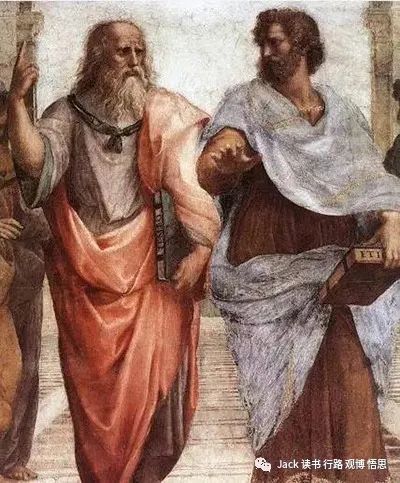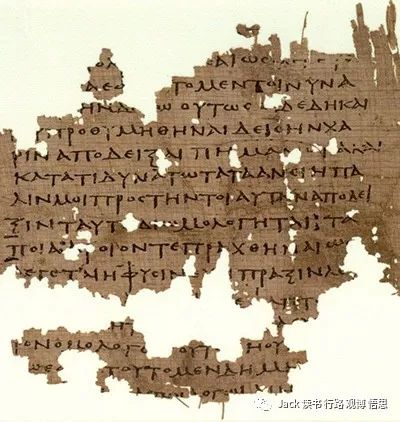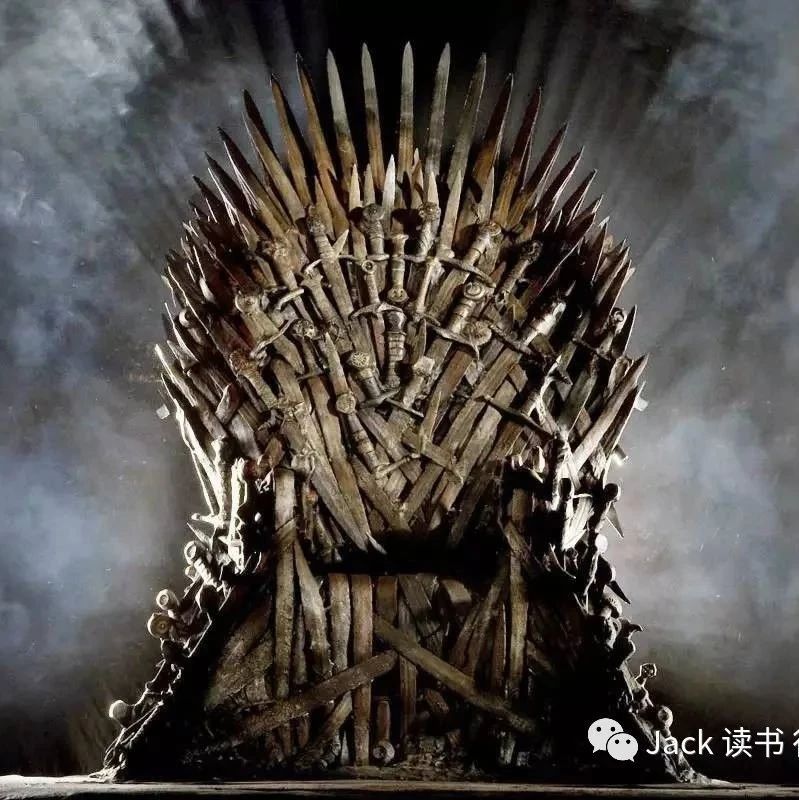Game of Thrones and "The Republic" On Justice 论《权力的游戏》与《理想国》中的正义

(Plato and Aristotle in "The School of Athens" by Raphael)

(Fragment of the transcript of "The Republic", third-century C.E.)
There are always unexpected coincidences in life. Recently, I have been watching the wildly popular HBO-produced TV show Game of Thrones. This TV series narrates a storyline set in medieval times in which nine dominant families engage in a macabre power struggle. However, from my point of view, the showrunners seem to be portraying a more profound topic, which is essentially how different characters deal with the concept of “justice”, from an individual level to a state level. Coincidentally, in the seminal philosophical piece The Republic, “justice” seems also to be the guiding concept for all discussions and for all of the central characters in the dialogues. Throughout the book, Socrates and his companions talk about individual justice and justice from a state perspective.
One of Thrasymachus’ central opinions in his debate with Socrates is that “the unjust man always comes off better than the just man”. The obvious meaning of his argument is that an unjust person can gain a huge number of personal profits. In the book, Thrasymachus boldly supported his viewpoint with the example of tyranny, which could be considered as the extreme form of injustice. He claimed that tyrants who do their job perfectly well would be called fortunate and people would forget their ugly names and even crimes. Thus, Thrasymachus argued that injustice is always stronger than justice.
In Game of Thrones, there are characters that act in accordance with Thrasymachus’ arguments. One of the most obvious examples of such a character is Cersei Lannister. Throughout the show, Cersei is portrayed as an unjust and cunning queen. She does not appear to have any moral, ethical, or political red line. Cersei’s injustice does seem to bring her many personal gains. She has an incestuous relationship with her twin brother Jaime, and they have three bastards; she, casting her covetous eyes on the wealth of the Tyrells, sacks Highgarden to pay her family’s debts to the Iron Bank; she sleeps with Euron Greyjoy to acquire his Iron Fleet; and she does not care for the lives of hundreds of innocents, as she manages to wipe out many of her most powerful political enemies by destroying the Sept of Baelor with wildfire, later earning the title of Queen of the Seven Kingdoms. Another character that appears to be quite unjust is Ramsey Bolton. Ramsey is certainly one of the most disliked characters in the show. To be the Lord of Winterfell and Warden of the North, Ramsey murders his own parents and his little brother. Eventually, Ramsey does succeed with his goals. Petyr Baelish (Littlefinger) is another example that is worth discussing. To reach a higher position in the hierarchical social system, he lives by his motto “chaos is a ladder”. Littlefinger cunningly manipulates different houses to pit against each other, and he procures the profits from those fights. He looks as if his injustice is able to continually provide him with opportunities, he has the support of the Knights of the Vale.
However, just like many GoT characters refuse to side with injustice, Socrates strongly disagrees with Thrasymachus, he holds that justice is more valuable than gold. Socrates additionally points out that “just men are more intelligent and more truly effective in action”. On this matter, I side with Socrates. I think that being a just man would fare better than the unjust man in the long term, although he or she could appear to be losing to the unjust temporarily.
Take the example of the Starks in GoT. The Starks are known for their integrity and justice. In the short term, they seem to be on the losing side. Ned Stark is beheaded after discovering Cersei’s fornication with Jaime and warning her to be careful; Robb Stark and Catelyn Stark’s lives are lost in the cruellest way at the Red Wedding; Rickon Stark also is killed by an arrow shot by Ramsey Bolton at the Battle of the Bastards. Compared to the unjust characters who use all kinds of conspiracies, like Cersei, Littlefinger, etc., the Starks appears to be crushed on all sides. The Starks, however, due to their adherence to justice and integrity, gradually gain the respect and loyalty of the various Northern houses. Ultimately, their justice earns them the North. More importantly, in the end, Bran Stark’s justice and integrity earn his family the Iron Throne. In comparison, the unjust characters, Cersei, Ramsey, Littlefinger, all would fail. Their clever but unjust ploys would never benefit them from a long-term perspective.
Overall, what The Republic and Game of Thrones are telling us as readers and viewers are that even though injustice could bring a huge number of personal profits on a short-term basis, it could rarely do so on a long-term one. Being a just man or woman is always better than being an unjust one. Not only would that just person gain respect, that “just mind and the just man would have a good life”. Justice means the goodness and beauty of the heart, it itself would bring happiness on a higher level. Therefore, we should follow the road Socrates describes for us--- “go[ing] the upward way and pursu[ing] justice with wisdom”.
WORKS CITED
"Game of Thrones: Cersei Lannister's Most Heartless Moments." YouTube, uploaded
by GameSpot Universe, 10 Sept. 2017, www.youtube.com/watch?v=gVKO4c0m6sQ. Accessed 17 Feb. 2021.
"权力的游戏史塔克家族剪辑." 好看视频, uploaded by 阳光依旧很甜, 9 July 2020, haokan.baidu.com/v?vid=10864458864462426819&pd=bjh&fr=bjhauthor&type=video. Accessed 17 Feb. 2021.
PICTURE FROM
http://www.5588wang.com/article/view-7030.html

(拉斐尔著名画作《雅典学院》中的柏拉图与亚里士多德)

(公园三世纪的《理想国》抄本残片)
生活中总会有意想不到的巧遇。最近,我一直在看风靡一时的HBO出品的电视剧《权力的游戏》。该剧讲述了在欧洲中世纪的历史背景下九大家族之间不断争夺权力和地位的故事。但我认为,编剧似乎在探讨一个更深刻的主题,即剧中不同人物是如何理解并践行 "正义 "的概念的,无论是小到个人层面,还是大到国家层面。巧合的是,在我正在阅读的开创性哲学作品《理想国》中,苏格拉底和他的同伴们也是通篇围绕正义展开论述,即如何达到个人正义与城邦正义。
- 本文标签: 原创
- 本文链接: http://www.jack-utopia.cn//article/448
- 版权声明: 本文由Jack原创发布,转载请遵循《署名-非商业性使用-相同方式共享 4.0 国际 (CC BY-NC-SA 4.0)》许可协议授权










